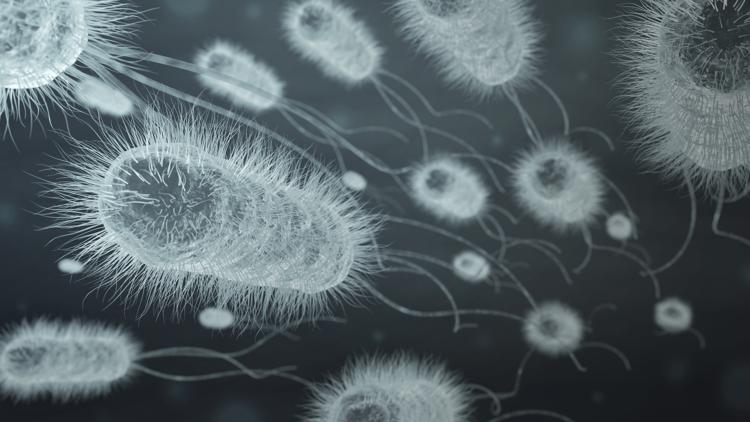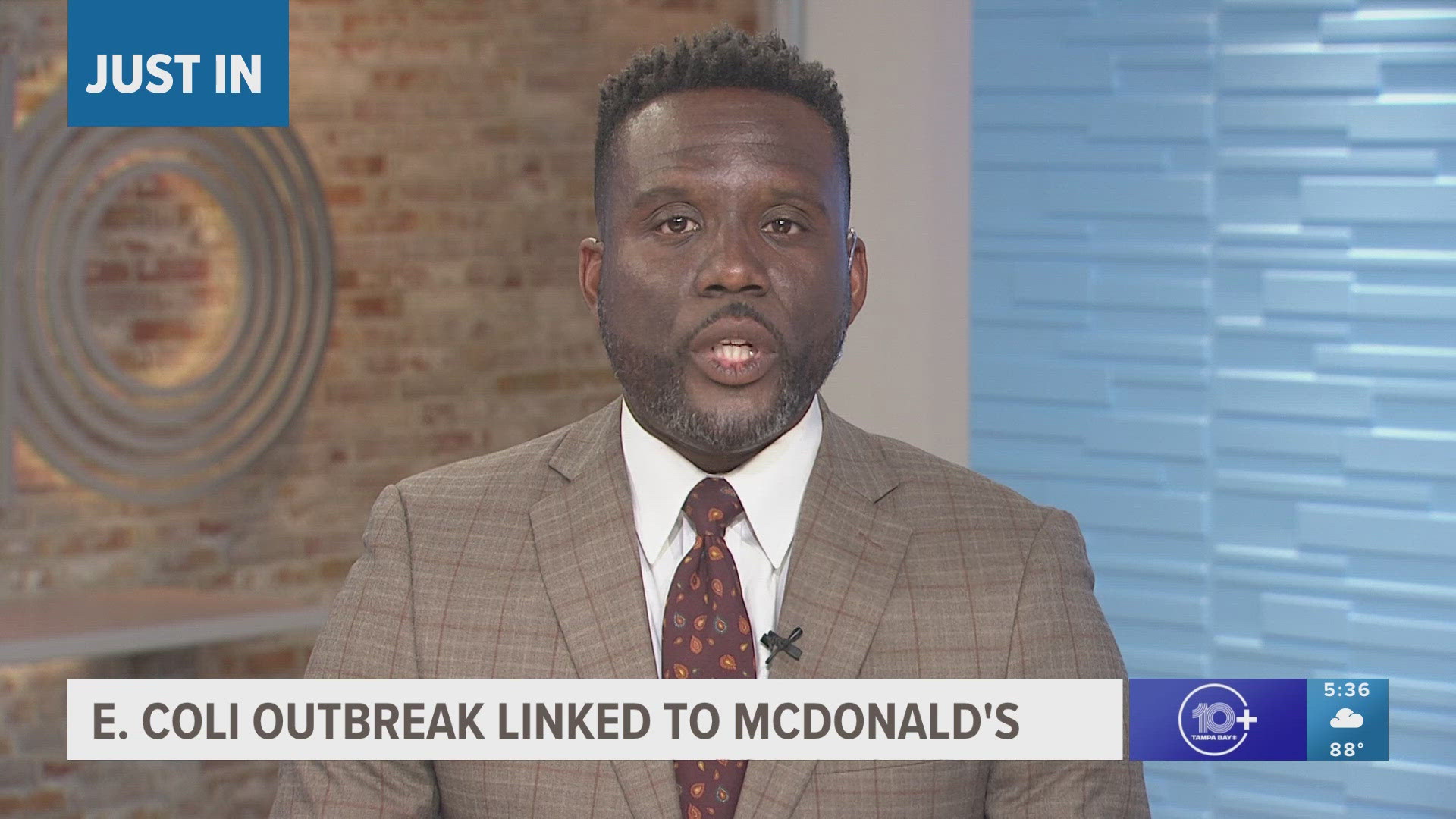ST. PETERSBURG, Fla. — News of an E. coli outbreak at McDonald's stores across several states that has resulted in dozens of people sick and the death of at least one person spread quickly Tuesday when the Centers for Disease Control and Prevention announced it was investigating.
As of this writing, no E. coli cases linked to McDonald's have been reported here in Florida.
Infections were reported between Sept. 27 and Oct. 11 in Colorado, Iowa, Kansas, Missouri, Montana, Nebraska, Oregon, Utah, Wyoming and Wisconsin. Colorado has the most cases, 27, followed by Nebraska with nine.
Everyone interviewed in connection with the outbreak had reported eating at McDonald's before falling ill and most mentioned eating Quarter Pounder hamburgers, the CDC said. The U.S. Agriculture Department, the Food and Drug Administration and state health officials are also investigating.
E. coli, aka Escherichia coli, is a large group of bacteria that encompasses many different kinds of germs, according to the CDC.
Some E. coli strains are good to have and naturally live in healthy human and animal intestinal tracts. Many more are harmless.
However, there are some kinds of E. coli that can make people sick. Specifically, six specific strains are known to cause diarrhea and sometimes other sickness as well.
They are the following:
- STEC: Shiga toxin-producing E. coli
- ETEC: Enterotoxigenic E. coli
- EPEC: Enteropathogenic E. coli
- EIEC: Enteroinvasive E. coli
- EAEC: Enteroaggregative E. coli
- DAEC: Diffusely adherent E. coli
The CDC says the people sickened in the McDonald's investigation had the shiga toxin-producing E. coli.
Common symptoms of shiga toxin-producing E. coli
- Bloody diarrhea
- Severe stomach cramps
- Vomiting
Common sources of shiga toxin-producing E. coli
- Contaminated food (especially leafy greens and ground beef)
- Unsafe water
- Animals (especially cattle), their poop, or their environment
- Poop of an infected person
There are ways to keep yourself safe and prevent infection from harmful E. coli. Here's what the CDC suggests:
- Keep your hands clean
- Follow four simple steps to food safety: clean, separate, cook, and chill
- Do not drink unsafe water
- At home
- Camping, hiking or traveling abroad
- Swimming
For more in-depth prevention tips, click or tap here.
The Associated Press contributed to this report.



